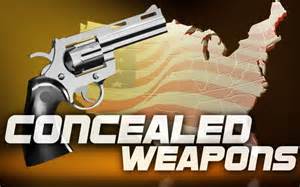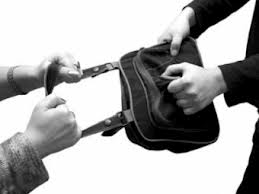
Regardless of your political leanings or views on the 2nd Amendment, the decision to carry a concealed firearm for personal defense is not something to be taken lightly; with that decision comes a great many responsibilities and considerations. As the former manager of a public shooting range, this is a topic I have discussed with many different people from all walks of life. My intent with this article is to give the reader some insight into this decision process without all the politics and product marketing found in most gun magazines and political publications. But first a disclaimer: I am not a lawyer, and this column is not meant to represent any form of legal advice; the legal responsibilities and ramifications of carrying and/or using a concealed firearm should be covered during the permitting process in your local jurisdiction.
Now that that’s out of the way, let’s talk about who shouldn’t carry a gun. If guns make you uncomfortable, don’t carry a gun. If you do not have the ability to safely load, unload, and care for your firearm, don’t carry a gun. And most importantly, if you doubt your ability to take the life another human being without hesitation, don’t carry a gun.
This last qualification may sound harsh, but it’s the truth. Never assume that simply displaying a gun will deter someone from harming you; if you know that you’re not willing to pull the trigger, chances are the other person does too. What’s more, they can then disarm you and turn the gun on you or someone else. Therefore by carrying a gun that you are not willing to use, you are potentially creating a dangerous situation for yourself and everyone around you. This caution particularly applies to those who are considering carrying a gun to protect themselves from an abusive ex-partner. You may have loved this person, they may even be the parent of your children, and if you are not willing to deliberately end this person’s life when it comes down to it, DON’T CARRY A GUN!
Age can be another factor in the decision to carry a gun. This is a tricky topic because elderly people are often the most vulnerable and in need of a method of defending themselves. However, just as there comes a time when it is no longer safe for an elderly person to operate a vehicle, there also comes a time when a person is no longer capable of safely carrying a firearm. Of course mental and physical capabilities vary greatly from person to person, so there is no magic age when we can say it’s time to give up the car keys and the gun. This decision needs to be made with the individual, the family, and perhaps the opinion of a trained firearm instructor.
****
OK, so you’ve decided you’re capable of responsibly carrying a gun to defend yourself. Now what? Practice! Most jurisdictions will require some sort of proficiency demonstration before issuing a concealed carry permit, but it is usually very minimal and not up to the standards that I would recommend for being able to responsibly carry a firearm. You may be thinking to yourself, most defensive uses of firearms occur at distances of a few feet, how much practice do I need for that? While you would be correct in thinking that most altercations occur at distances that do not require expert marksmanship, that is not what this is about. This is about being comfortable with your firearm, being intimately familiar with its operations, and most importantly being confident in your ability to use it effectively. There are also safety considerations such as trigger discipline and muzzle awareness that will only become second nature (which they need to be if you’re going to carry a gun) with extensive practice.
And remember, have fun! Join a club, shoot in competitions. Don’t be discouraged or intimidated by the fact that you may not be the best shot on the range. The only way you’re going to get better is through practice, and the only way you’re going to practice is if you enjoy it. There are many different styles of competitions out there, and new ones seem to be popping up all the time. In my experience most competitive shooters are very welcoming of beginners and you can usually find someone who is eager to give you a few pointers.
You also want to make sure you have a gun that is enjoyable to shoot. Obviously there are certain size and weight limitations that apply to guns that will be carried concealed, but ideally you want a relatively small caliber gun that has enough heft to absorb recoil and is large enough to fit comfortably in your hand. You probably don’t want to start with tiny, lightweight, large caliber handgun that is going to fly out of your hand and/or bite you when you pull the trigger. You may think that you want the lightest gun possible with the most stopping power, but I guarantee you it will be unpleasant to shoot and you will not practice with it as much as you need to.
****
Let’s assume you’ve got your concealed carry permit, you’ve got your pistol, and you’re safe, competent, and confident with it. Now let’s discuss how to responsibly carry a gun. If you are going to carry a gun it needs to be in your direct control at all times. Don’t leave it in your brief case, or put it in a coat pocket and then take the coat off. You need to make sure that your gun is not accessible to anyone else. The recent tragedy in which a two year old fatally shot his mother in a Walmart checkout line after reaching into her purse and discharging her gun illustrates this point all too well.
Lastly, the most important thing to keep in mind while carrying a gun is conflict avoidance; if you think that carrying a gun will give you the confidence to enter into situations you might otherwise avoid, or to confront people you might otherwise be afraid of, you are wrong and you should NOT carry a gun! If there is a conflict while you are carrying a gun, it means that there will be at least one deadly weapon involved. This means that you cannot allow yourself to be overpowered or incapacitated and risk having your gun taken away. This means that if you are in danger of being overpowered or incapacitated you will need to use your gun to defend yourself. This means that you may end up taking someone’s life over some minor insult or dispute. This means that you could possibly end up in prison, or be hounded by civil litigations, not to mention the mental toll of having taken someone’s life. This means that if you are going to carry a gun you need to AVOID CONFLICT AT ALL COSTS!
If this sounds like a lot of rules and caveats, it is. I am a firm supporter of the Second Amendment and the notion that every individual has the right to defend themselves; that being said, I believe that most people do not need to carry guns most of the time. When you carry a gun you are making a trade-off; you are equipping yourself with a tool to defend yourself in a potentially lethal situation, but you could also be introducing an element of lethality into a situation that might otherwise not be. Remember, this is a calculation that should be consciously made every time you step outside of your house with a firearm.

